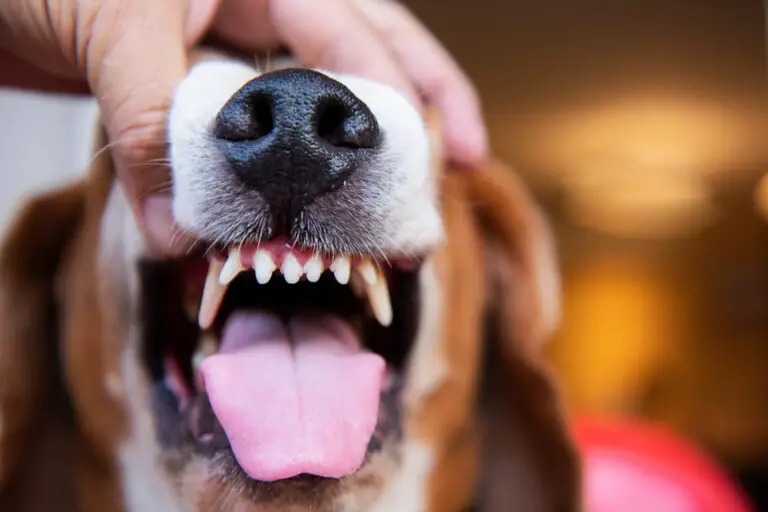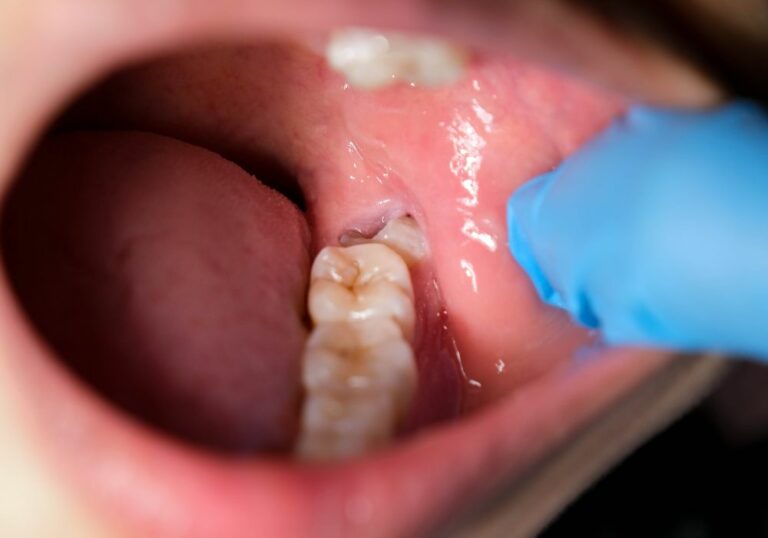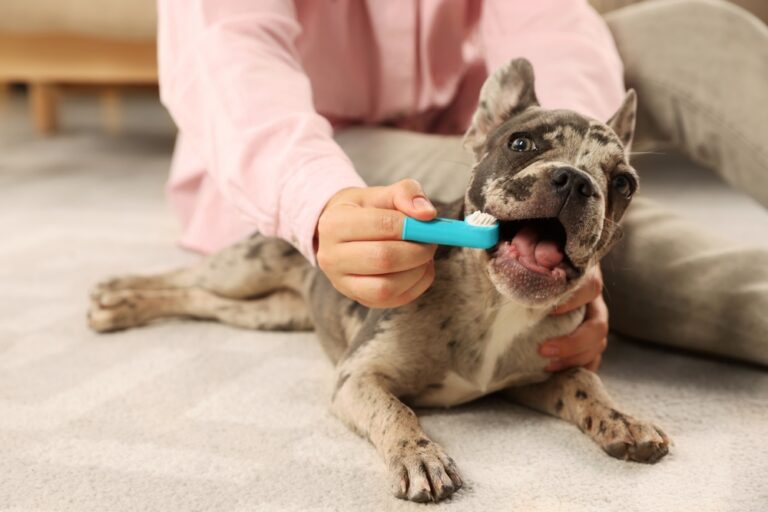Losing your appetite after a minty fresh brushing is an annoyingly common phenomenon. You feel ready to settle in for the night when you realize your stomach is grumbling and craving a snack. But the thought of food is suddenly unappealing with the lingering taste of toothpaste in your mouth. What causes this loss of appetite after oral hygiene? There are a few key scientific explanations behind why brushing your teeth suppresses your desire to eat.
The Strong Sensation of Mint Disrupts Taste

One of the biggest reasons for appetite loss after brushing is that the intense minty flavor interferes with your ability to taste food normally. Let’s look at the mechanics of how mint alters taste bud function on the tongue.
Mint Chemical Composition
Mint plants, including popular varieties like peppermint and spearmint, contain a volatile aromatic compound called menthol. This chemical is what gives mint its cooling, refreshing sensation when applied topically or ingested.
Menthol works by stimulating cold-sensitive receptors called TRPM8 ion channels in the mouth and nose. When menthol activates these receptors, it is perceived as a cold sensation, even though no actual change in temperature occurs.
TRPM8 receptors are found all over the tongue, soft palate, and upper gastrointestinal tract. So swishing mint toothpaste thoroughly coats the mouth with menthol, allowing it to interact with these receptors everywhere.
Direct Impact on Taste Buds
In addition to triggering cold-sensitive nerves, menthol also directly suppresses some of the taste bud receptors on the tongue.
Human tongues have about 5,000-10,000 taste buds, each containing 50-100 taste receptor cells. These receptors detect five primary taste modalities:
- Sweet – activated by sugars and carbohydrates
- Salty – activated by sodium ions
- Sour – activated by acids
- Bitter – activated by alkaloids, peptides, and hydroxamic acid
- Umami – activated by amino acids like glutamate
When menthol binds to TRPM8 receptors, it blocks the transmission of sweet signals to the brain. Studies show that the perceived sweetness of sucrose solutions decreases after rinsing the mouth with menthol. This explains why candy or dessert sounds much less appetizing when you still feel the lingering minty coat of toothpaste.
Change in Sensitivity Threshold
Menthol not only suppresses sweet taste buds, but research indicates it raises your taste threshold for sweet foods overall.
Your taste threshold is the minimum concentration of a flavor needed for you to detect its presence. After using mint toothpaste, your tongue requires stronger concentrations of sweetness to notice and activate those taste receptors.
So sugary or sweet treats seem bland and unpalatable, because more intense sweetness is needed to satisfy your urge for sugar after brushing. This raises your threshold so much that even desserts you normally love are not sweet enough after mint exposure.
Delayed Saliva Production
Saliva helps enhance your retronasal perception of food flavors. But menthol has been shown to temporarily reduce salivary flow in the mouth. Having less saliva coating your mouth, tongue, and throat makes tasting flavors more difficult.
With the natural lubricating effects of saliva diminished, foods are not properly dissolved and distributed to reach all your taste buds efficiently. Reduced saliva also allows toothpaste residue to linger longer, extending its appetite-suppressing influence.
One study found it takes at least 30 minutes for saliva flow to return to normal rates after using mint toothpaste. So your ability to taste and enjoy food is impaired for half an hour or more while waiting for saliva levels to be replenished.
Smell Perception is Disrupted
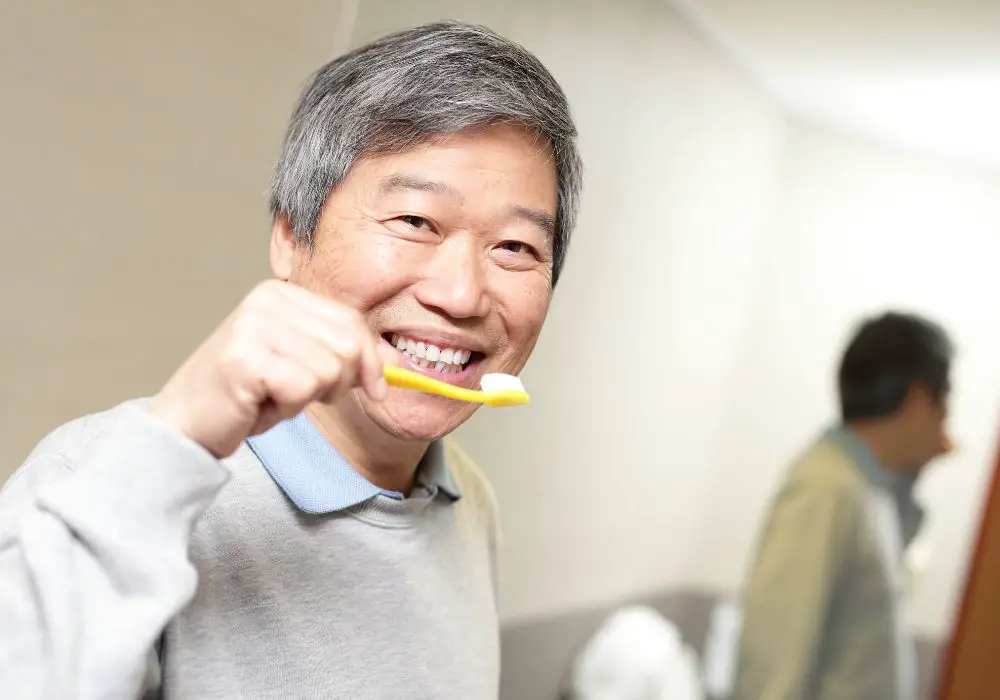
In addition to taste, smell is equally important for stimulating appetite and enhancing flavor. The menthol in toothpaste can interfere with your olfactory receptors and make food aromas less appealing after brushing.
Retronasal Smell
While you inhale external odors through your nostrils normally, the mouth also connects to smell receptors high in the nasal cavity. As you chew food, aromas are released retronasally up this pathway to odor receptors.
But with strong minty toothpaste aromas still present in your mouth, some of those food odor molecules are overpowered and unable to trigger a response to reach the brain. This alters your overall flavor perception.
Congestion Clearing
Menthol is known to have decongestant effects by constricting blood vessels in the nasal passages. When used in the nose and throat, this can help open airways and clear mucus or congestion that might be blocking air flow.
Although toothpaste is not directly inhaled through the nose, some of the menthol vapor can reach the nasal cavity. This clearing of congestion similarly opens airways but also decreases detection of food odors entering the nose retronasally.
Adaptation to Mint
Exposing your olfactory system to the same minty aroma for an extended time can cause adaptation. This means your sensitivity decreases as receptors fatigue from constant stimulation.
Just as you stop noticing a scent after a while when continuously exposed, your smell receptors tune out the mint aroma. This makes you less receptive overall to new food odors that need detecting.
Disrupted Smell Signaling
Finally, the cold-sensitive TRPM8 receptors activated by menthol are found in the nose as well. Even though food odors are unrelated to temperature, some research indicates smell signaling can still be altered.
The influx of menthol </2> overwhelming the nasal cavity seems to disrupt communication to the olfactory receptors. So your ability to detect and process food aromas is impaired both retronasally and through normal breathing.
Habit and Learned Behavior
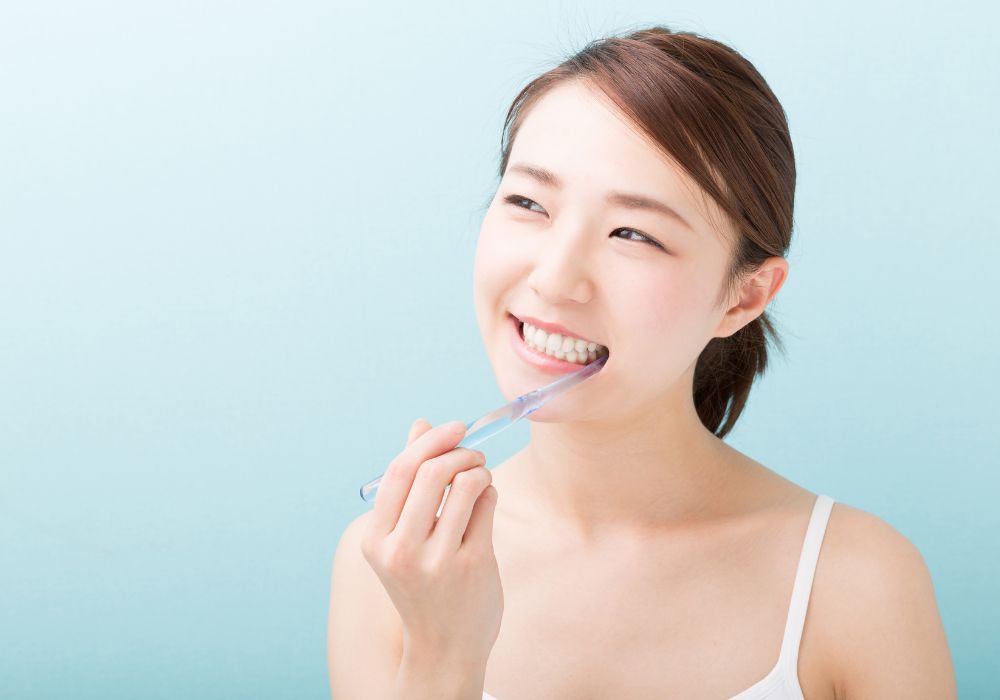
Beyond the scientific reasons that mint disrupts taste and smell, there are psychological factors that contribute to losing your appetite after brushing. Through habit and learned behavior, your brain starts to associate the actions with being finished eating for the day.
Oral Hygiene Routine Signaling
For most people, brushing your teeth is the last step in your oral hygiene routine at night. Flossing and mouthwash come before it, signaling that eating time has passed and it’s time to get ready for bed.
If you routinely avoid eating or drinking anything for 30 minutes after brushing your teeth, you condition yourself over time to link that clean, minty mouthfeel with fasting.
Your brain adapts to the pattern and you automatically feel less hungry once you brush, even if consciously you might still want a snack. The habit becomes ingrained.
Expectation that Food Won’t Taste Good
Additionally, you likely expect that anything you eat right after brushing your teeth will not taste good due to the lingering toothpaste.
When your brain anticipates that an action will result in an unappealing or negative outcome, it urges you to avoid that action. This conditioned response means you feel less motivated to eat after brushing, regardless of your hunger levels.
Even if you haven’t brushed recently, just anticipating that food won’t taste right because it normally doesn’t after brushing can be enough to dampen your appetite temporarily.
Other Factors Influencing Post-Brushing Appetite
While the strong minty flavor of toothpaste appears to be the main cause of appetite suppression, other factors related to your daily routine may also contribute.
Already Being Full
Often, brushing your teeth is one of the last activities you do before going to bed. Chances are you finished dinner a couple hours beforehand so your stomach is not empty.
If you ate a filling, satisfying dinner, you likely feel satiated already. Being sufficiently full makes you less inclined to crave a snack before bed, regardless of whether you just brushed your teeth.
Fatigue and Sleepiness
Brushing your teeth also tends to signal to your body that bedtime is approaching. Assuming you keep a regular sleep schedule, feeling tired is natural at that time of night.
When you are fatigued, drowsy, and ready for sleep, you will generally feel less hungry. Your metabolism starts slowing as bedtime nears, so you do not feel the same need for additional calories.
Yawning or feeling sluggish when you brush your teeth is a sign that your body expects sleep, not more food intake. This contributes to disinterest in eating.
Avoiding Nighttime Heartburn
Some people experience acid reflux or heartburn when they eat too soon before lying down to sleep. To avoid exacerbating these uncomfortable symptoms, your brain discourages eating after brushing your teeth.
When oral hygiene signals you are getting ready for bed, avoiding post-dinner snacks becomes a protective habit for those prone to indigestion. Even if your stomach rumbles, you listen to cues that eating close to bedtime results in reflux.
Dehydration Suppressing Appetite
Hydration status can influence appetite, as dehydration frequently decreases hunger levels. Brushing your teeth does not replace drinking enough water and fluids during the day.
If you are not properly hydrated, you may notice loss of appetite even more intense after brushing. This relates to your overall fluid intake rather than effects of toothpaste alone. Drinking more during the day can help offset this issue.
High Stress and Anxiety
Appetite signals originate in the hypothalamus region of the brain, as well as other areas like the brainstem and cerebral cortex. Stress hormones like cortisol that are elevated during times of high anxiety can disrupt these signals.
The transition period after brushing teeth and getting ready for bed is when stressful thoughts or anxiety about the next day may surface in some people. This adrenaline rush then suppresses hunger cues temporarily.
Tips for Eating After Brushing Your Teeth
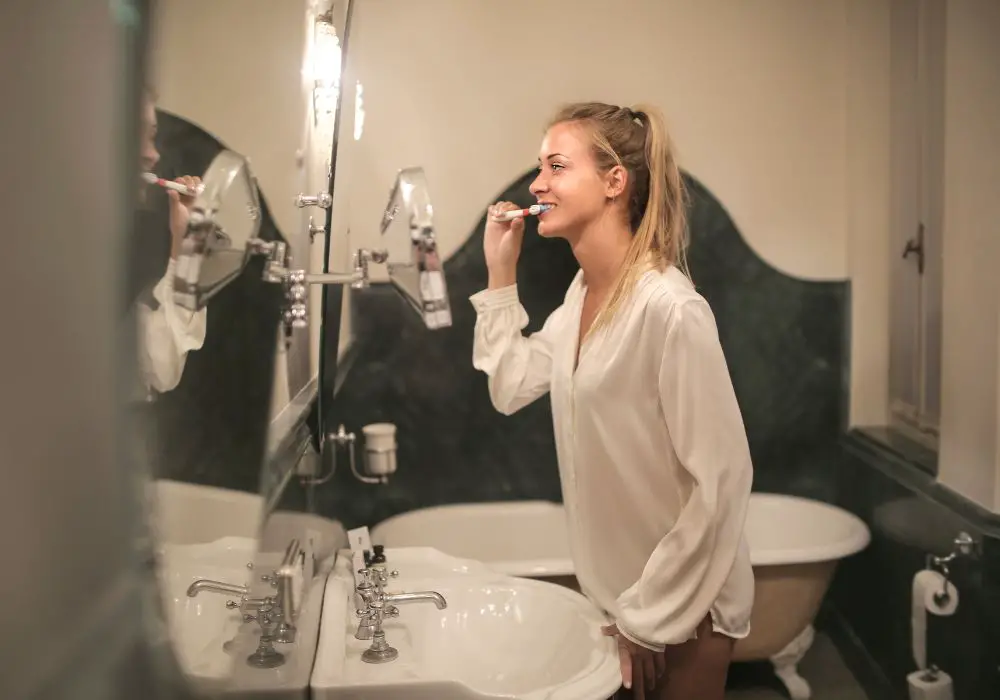
While loss of appetite after brushing is normal, it can be frustrating if you find yourself wanting a snack at night. Here are some tips to help you enjoy post-brushing food:
Choose Strong Flavors
The key is to pick foods with intense, bold flavors that can override any residual toothpaste taste in your mouth. Things like:
- Spicy foods – chili peppers, curries, salsa
- Salty foods – pretzels, chips, olives
- Sour foods – citrus fruits, pickled items, sour candies
- Bitter foods – black coffee, unsweetened chocolate, arugula
- Umami foods – broths, tomato sauce, cheese, mushrooms
Potent flavors stimulate your taste buds maximally and are less affected by mint interference.
Drink Beverages
Sipping on a beverage helps rinse the minty taste from your mouth so food tastes better. Options like:
- Water – helps dilute and flush out toothpaste
- Coffee – bold, bitter flavor cuts through mint
- Tea – tannins help balance mouthfeel
- Soda – carbonation scrubs mouth; citrus or cola flavors predominate
- Juice – citric or other fruit acids temper mint aftertaste
Avoid milk because the creamy texture combines poorly with toothpaste.
Use Gum or Mints
Surprisingly, chewing mint gum or sucking on mints for a few minutes before eating can help reduce leftover toothpaste flavor.
Activating your mint receptors again seems to fatigue them faster, making them less sensitive overall. Peppermint or spearmint are ideal choices.
Rinse Your Mouth
Swishing water vigorously around your mouth helps mechanically clear some residual toothpaste. Make sure to rinse between teeth and along your gums and tongue.
You can use mouthwash for an even more potent palate-cleansing, but alcohol-based varieties may worsen dry mouth. Go with a non-alcohol mouthwash to stimulate saliva.
Wait 30 Minutes
Be patient and wait at least 30 minutes after brushing before attempting to eat. This allows saliva flow to normalize, congestion to clear, and mint dulling of receptors to fade.
Use a timer or occupy yourself with another activity first. Gradual recovery of taste and smell means food cravings reemerge.
Adjust Your Routine
If you battle late-night hunger pangs, switch the order so you brush your teeth after eating instead of before. Just be sure to avoid brushing immediately after and wait 30 minutes if you consume acidic or sugary foods.
Saving your dental hygiene for post-snack prevents toothpaste ruining your appetite as you get ready for bed.
When to Seek Medical Care
While the occasional loss of appetite specifically after oral hygiene is normal, more significant or persistent appetite issues may require medical evaluation. See your doctor promptly if you experience:
- Lack of appetite throughout the day, unrelated to brushing
- Consistently poor, altered sense of taste or smell
- Unintentional weight loss without explanation
- Difficulty swallowing foods or drinks
- Pain or discomfort while eating
- Complete disinterest in food or drink
- Loss of appetite combined with lethargy or lightheadedness
These may be signs of underlying conditions requiring diagnosis and management, such as:
- Upper respiratory infection
- Oral or gastrointestinal ulcers
- Foodborne illness
- Viral infection
- Sinusitis
- Gastroesophageal reflux disease (GERD)
- Peptic ulcer
- Medication side effects
- Endocrine disorders like diabetes or hyperthyroidism
- Autoimmune disease
- Depression or anxiety
Your doctor can run tests to identify any underlying medical issue, provide appropriate treatment, and help restore normal appetite and eating. Prompt evaluation prevents complications of poor nutrition and significant weight loss.
The Bottom Line
It’s common to temporarily lose interest in eating after brushing your teeth, mainly due to the lingering minty flavor interfering with your taste buds and sense of smell. While annoying in the moment if you crave a midnight snack, take comfort that this effect is temporary and harmless for most people. Allowing 30 minutes for your mouth to recover before eating or choosing strong tasting foods can help overcome toothpaste-induced appetite loss. Just be mindful that consistent issues with appetite warrant discussion with your doctor.
Frequently Asked Questions
Here are some common questions about why your appetite decreases after brushing your teeth:
Do mint toothpastes cause more appetite suppression than non-mint?
Yes, research shows mint flavored toothpastes, especially those containing menthol, have greater appetite suppressing effects. Non-mint pastes like fruited or bubblegum flavors cause less taste alteration.
Why do I crave orange juice after I brush my teeth?
The citric acid in OJ helps neutralize the alkaline mint residue in your mouth, making it an appealing choice. Just beware of damaging tooth enamel, and rinse your mouth with water afterward.
Is it unhealthy to go to bed on an empty stomach after brushing?
Generally no, unless you have issues with nighttime heartburn or reflux. Your body is primed for fasting overnight anyway. Just be sure your overall caloric intake is adequate during the daytime.
Will drinking water help get rid of the toothpaste taste faster?
Yes, swishing and rinsing with water dilutes residual toothpaste and clears it from your mouth more quickly than waiting alone. Water also stimulates some saliva flow to return taste to normal.
Is toothpaste flavor the only reason I don’t want to eat at night?
Not always – being full from dinner, feeling tired at night, avoiding heartburn, or high stress can all suppress your appetite at night independently from oral hygiene effects.
Should I change to a non-mint toothpaste if I snack at night?
You can try a less strongly flavored toothpaste, but your senses will likely adjust to perceive mintiness over time anyway. Focus more on waiting 30 minutes, rinsing your mouth, or eating bold foods.
How do I get my kids to eat after brushing teeth at bedtime?
Serve small portions of highly flavorful foods, give them mint gum to chew beforehand, or try bubblegum-flavored toothpaste. Making sure they drink enough during the day prevents dehydration worsening appetite loss.
Why does toothpaste ruin the taste of my coffee in the morning?
The bold coffee flavor is muted by residual mint overnight. Drink a full glass of water to rinse the mint away before your first sip of coffee. The taste of subsequent cups is less affected.
When does my appetite normally return after brushing at night?
It typically takes 20-30 minutes for taste and smell to normalize after brushing. Allowing at least a half hour for receptors to recover before eating ensures you enjoy the flavors properly.

